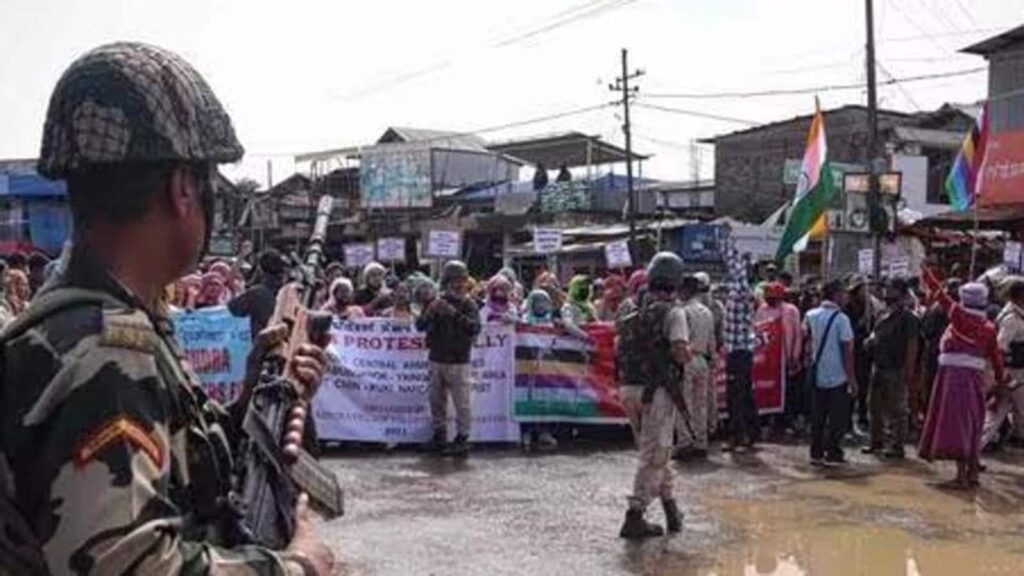It’s been four months since ethnic violence first broke out in Manipur, but the local administration and security officials appear to still not have a complete handle on the law and order situation. For the last few days, a gunbattle has waged on the border of the Bishnupur and Churachandpur districts but neither security forces nor the state government has been able to stop it. At least eight people have died since Tuesday, district officials confirmed to this newspaper, even as bullets continue to fly between Meitei and Kuki groups, with the administration appearing to be effete bystanders with little power to quell the violence.
The gunbattle, the bloodiest episode in the strife-torn state in two months, has hobbled whatever stumbling efforts at peace were made by the local authorities and belied claims by the Union and state governments that violence was ebbing in the state and the situation was becoming normal on the ground. On the contrary, security officials told this newspaper that they continue to face obstructions on the ground, including from women protesters from the Meitei community, better known as Meira Paibis, indicating that the deep reservoir of distrust built between the two communities, and in the rule of law, had not been drained. In any case, an unprecedented face-off between the Assam Rifles and the Manipur Police last month — state police registered a first information report (FIR) against the Assam Rifles for allegedly stopping them from pursuing armed miscreants, prompting the central paramilitary force to reject what it called “desperate, repeated and failed attempts” — was a deeply troubling portent for the security situation in a state where the civilian administration appears to have melted away since clashes first broke out on May 3.
In sum, this is the conundrum in Manipur — the Meitei groups don’t trust the Assam Rifles, the Kuki groups don’t trust large chunks of the Manipur Police, and the working relationship between the two official forces responsible for securing the state appears to be fraught. The Indian Union has not faced such a systemic breakdown of law and order in several years. The Northeast is a sensitive part of the country, and any conflagration here can cast a shadow on national security, especially because of its proximity to China, which could be tempted to fish in troubled waters either directly or through proxies. More importantly, in a region riven by ethnic and community loyalties, the continuing violence threatens to open fault lines that no peace process can later bridge, and undo decades of efforts to integrate the state.
The current state of political polarisation in India has meant that Manipur, too, has been reduced to another electoral issue on which the government and Opposition trade charges. But the crisis in Manipur is graver, and with far-reaching consequences, than any immediate political issue. The central government may have backed chief minister N Biren Singh but must continue to seek accountability from his administration, and haul them up for failures. There is also clearly a need for changes and an overhaul in local government to shed the perception of preferential action or partisan decision-making. And finally, the securitised approach appears to have run its course. It’s time for political and social processes to take centre stage, and for the government to work towards gaining the trust of every Manipuri, not take refuge in numerical security in the assembly.
Embrace independence with quality journalism
Save on HT + The Economist subscription


